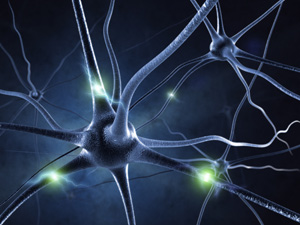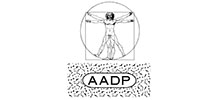The Benefits of Comprehensive Hormone Testing

Hormones are signaling molecules produced by glands and are then transported by the circulatory system to various organs for the purpose of regulating physiological function and behavior.
Hormone deficiencies, excesses, or improper ratios affect your physical health and emotional well-being.
If you have any complaints with any of the following: menstrual cycles, menopause, andropause, excess or decreased libido, feel stress and anxiety, metabolism and weight management difficulty, low energy and fatigue, hyperactivity, or note sleep disturbances or poor quality sleep, then you may wish to consider hormone testing.
Hormones tested are:
Cortisol Hormone Testing: Cortisol is a steroid hormone produced in the adrenal glands which sit on top of the kidneys. This hormone is released in times of stress or when blood sugar is low. It is necessary for blood sugar stability. It is necessary for a healthy immune system, aids in the metabolism of fats, carbohydrates, and protein. It also effects bone density, proper wound healing, electrolyte balance, gastric and kidney function, memory, sleep and mood. Complaints associated with excess cortisol levels are: excess weight (especially belly fat), acne, frequent skin infections, deep bone pain, chronic back aches, muscle weakness, increased blood pressure, irritability, anxiety, mood disorders, headaches and chronic fatigue. Complaints associated with cortisol deficiency are: rapid heartbeat, breathing problems, extreme tiredness, chronic diarrhea, hypoglycemia, excessive hunger, dizziness, shakiness, and also anxiety, mood disorders, and mental confusion.
DHEA Hormone Testing: DHEA (didehydroepiandrosterone) is another steroid hormone and is the most abundant steroid hormone in the body. It is produced in the adrenal glands, sex glands (gonads) and in the brain. Its predominant function is for male and female sex steroid hormones and brain or neurosteroid hormones. Complaints associated with excess DHEA : contributes to PCOS (polycystic ovarian syndrome) and insulin resistance (Metabolic Syndrome, Type II Diabetes). Complaints associated with DHEA deficiency are extreme fatigue and low stamina, low libido(especially in females), depression, decreased bone and muscle mass, joint pain, dry skin and eyes, poor memory, inability to lose weight, weak immune system, and sleep disorders.
Estrogen Hormone Testing: Estrogen is the primary female sex hormone and responsible for the development and regulation of the female reproductive system and female sexual characteristics. It too is another steroid hormone The THREE MAJOR TYPES of Estrogen are:
- Estrone (E1) - Predominant during menopause
- Estradiol (E2) - Predominant during reproductive years
- Estriol (E3) - Predominant during pregnancy
Estrogens are synthesized in the body from androgens (testosterone and androstenedione) by enzymatic activity in the body and from DHEA. Estrogens are produced mostly in the ovaries, but are also produced by the adrenal glands, liver, breasts, and by fat cells!! Complaints of excess estrogen are weight gain ( especially in the waist, hips, and thigh area), increased fat cells ( which produce yet more estrogen in an already estrogen dominant state), irregular menstrual cycles, excessive or decreased menstrual bleeding, endometriosis, increased PMS ( premenstrual syndrome), bloating, tender breasts, decreased libido and interest in sex, mood swings, irritability, anxiety, poor memory, and fatigue. Complaints of deficient estrogen are hot flashes, insomnia and sleep disturbance, poor quality sleep, bloating, weight gain, mood changes, and irregular menstrual cycles.
Progesterone Hormone Testing: Progesterone is also a steroid and sex hormone involved in the menstrual cycle, pregnancy, and fetal development. In addition to being important to sex hormone production, it too has a role in corticosteroid production and brain function as a neurosteroid. Progesterone is produced in highest amounts in the ovaries but also in the adrenal glands, nervous tissue, and in fat tissue. Because of its ability to enhance serotonin receptors in the brain, an excess or deficit can have an effect on nicotine, alcohol and other types of ADDICTION. Complaints of excess progesterone are tiredness and lethargy, ovarian cysts, potential for multiple births (twins or triplets), vaginal dryness, mood swings, lack of interest in sex or low libido. Complaints of progesterone deficiency are infertility or difficulty getting pregnant, miscarriage, belly fat and weight gain, low sex drive, heavy menstruation, breast lumps and cysts, PMS, bloating, cravings, cramps, hot flashes, fatigue, pain, mood swings, insomnia, frequent headaches, joint and muscle pain, anxiety, constipation, low immune function, higher risk of osteoporosis, heart disease, and breast and uterine cancer.
Testosterone Hormone Testing: Testosterone is a steroid and sex hormone, and responsible for male sexual characteristic development. It is primarily secreted by the testes, to a lower extent by the ovaries in females, and by the adrenal glands in both sexes. Testosterone plays a role in prostate and testes development. It also promotes increased muscle strength, increased bone mass, growth of body hair, and prevention of osteoporosis. Complaints of excess testosterone are increased facial hair in women, irregular menstrual cycle, weight loss in men, aggressive behavior for some people, increased cardiovascular disease ( strokes/heart attack), cancer of the prostate, increased sleep apnea, increased alcohol consumption, increased nicotine use, liver disease, and skin infections. Complaints of testosterone deficiency are low libido in both sexes, aches and pains in bones and joints, osteoporosis, low stamina, fatigue, erectile dysfunction, low mood, irritability, loss of muscle mass, increase in body fat, anemia, and low concentration and memory.
Melatonin Hormone Testing: Melatonin is the hormone associated with sleep and our day to day circadian rhythm (24 hour cycle). Usually Melatonin increases as the day ends and darkness begins. It is responsible for our sleep timing and helps with blood pressure regulation. It is synthesized by enzyme activity and subsequent conversion of L-Tryptophan (an amino acid) to its end product Melatonin in a 4 step process. The secretion of the hormone is regulated by a neurotransmitter in the brain and is produced by the pineal gland. Levels vary by physiology, diet, light exposure, wave length of light exposure, and even affected by the seasons. It has been shown to have free radical scavenger/ anti-oxidant ability, anti-inflammatory properties, and assist with some heavy metal elimination. Because of the nature of production in a 24 hour period, complaints of less than optimal melatonin levels at the proper times can impact sleep duration, sleep quality, and daytime alertness. This is especially an issue with shift workers. It has been known to help with anxiety, migraine headaches, cluster headaches, gallstones, tinnitus (ringing in the ear), increases REM (rapid eye movement) sleep, increases dream activity and helps with smoking cessation for some individuals. When testing Melatonin levels, I have access to 3 types of tests specific to mood, insomnia, or shift work depending on the clients' history and need.
As you can see, hormones individually and in conjunction with each other play a vital role in health and well-being status. You can see that an excess or deficiency of certain hormones can cause the same complaint. You can also see that sometimes not a true excess or deficiency may be the cause but improper balance and ratios with other hormones, all at optimal levels, can create the complaints. That is why it is important to have a comprehensive hormone test done, so that these hormones can be tested but also tested against other hormones. If not, it is like taking a snap shot out of a movie. The whole story would not be evident.
If and when warranted, I will arrange for testing for you. The experts at the lab I utilize will interpret your results and CUSTOM BIO-IDENTICAL HORMONE formulations will be made for you. This is a unique service for anyone needing support. The custom formulation blends are specific to your needs and individual results and not a "one size fits all" pill, pellet, or cream.
If you have any questions and would like to discuss the possibility of this testing to address your complaints so that you can feel and be your best, contact me by phone (856 745 2430) or email at info@JuliaScalise.com.










